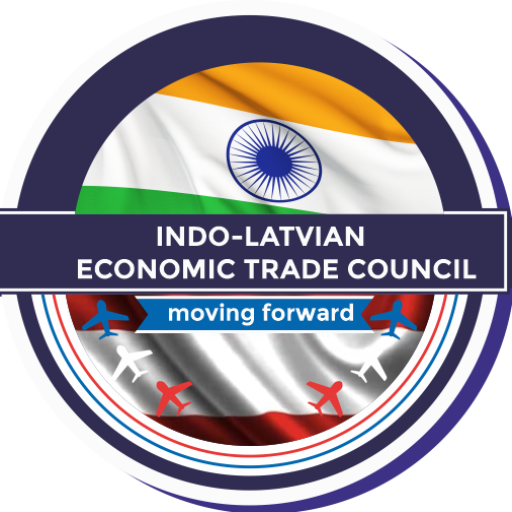Indo-Latvian Economic Trade Council (ILETC)
Our Objective & Value System!
- InvestDoing Business in Latvia




OVERVIEW
After being mired by sluggish domestic and foreign demand, economic growth is expected to gradually pick up again in 2024. The increase in the minimum wage, from €620 to €700 per month, and in the remuneration of public workers, will fuel nominal wage growth that was already on the rise in 2023, in a tight labor market due to labor shortages. As a result, purchasing power will improve also on back of lower inflationary pressures, enabling a gradual recovery in private consumption. However, the brake on demand will persist, especially in the early part of the year in the shape of deteriorating market confidence and high borrowing costs. Tight financing conditions will continue to weigh on private investment, while companies will face significant input costs due to energy prices and the gradual replacement of Russian goods imports. With the energy crisis and monetary tightening weighing on regional activity, Latvia’s main economic partners (Lithuania, Estonia, Germany) will experience sluggish growth, preventing a strong recovery in exports. Last, public investment will contribute most to growth, thanks to increased social and security spending, and investment in energy and transport infrastructure. For example, EU funds will continue to support the development of the electricity grid network and the European RailBaltica project, which will improve prospects for the construction sector.
Deficits financed by Europe
The public deficit eased in 2023 thanks to the gradual reduction in energy support measures. The 2024 Budget provides for an increase in current and capital expenditure, with higher public wages and funding for health and research. Defense and internal security will be prioritised in government policy, and will receive additional funding of 91.9 million euros. Spending on the development of energy and transport infrastructure will also increase, and education will receive more than 119.5 million euros. That said, the continued removal of household support measures, together with tax reforms, will offset the increase in spending, and stabilise the public deficit. In particular, the government plans to modify the tax regime for micro-enterprises (single rate of 25%), reform income taxation for financial companies, raise the VAT registration threshold (from 40 to 50 thousand euros) and increase the rates of various excise taxes, enabling revenues to grow moderately. The country will have no real difficulty in financing its deficit since it has a low debt ratio. It will be able to count on European funds, notably via the Recovery and Resilience Plan, granted in 2021 and extended in 2023. Fund inflows amount to 1.97 billion euros for Latvia, 42% of which is dedicated to climate objectives and 23% to digital transition. The targets must be met by 2026.
The year 2023 was marked by sluggish European trade flows. In 2024, weak growth and timorous demand from main trading partners will prevent trade from really picking up. Growth in exports (timber, cereals, electronics) will be slow, and will occur mainly in the second half of the year as inflation falls in Europe. Imports will be supported by public investment in infrastructure and by energy prices. While the trade balance is structurally negative, the services account will remain in surplus, buoyed by information technology and transport.
Political and geopolitical instability
Following the resignation of the former Prime Minister due to disagreement within the government over the choice of a common presidential candidate, a new three-party coalition was formed in September 2023. It is led by Evika Silina and comprises three heterogeneous parties holding a slender majority (52% of seats) in Parliament: once again the Prime Minister’s center-right New Unity party (JV), this time accompanied by the social-democrats The Progressives (P) and the centrist alliance The Union of Greens and Farmers (ZZS).
Latvia continues to affirm its support for Ukraine, with the 2024 Budget providing 11.4 million euros to help the country, particularly with its reconstruction efforts. In addition, it closed two border crossings with Russia in October 2023 and intends to impose additional sanctions on European grain imports. The country wishes to weaken Moscow’s influence by restricting the use of the Russian language in education and banning the broadcasting of Russian television. To address the threat posed by Moscow, the government has made security one of its priorities, and is consequently improving border infrastructures, military equipment and investment in cyber-security. The country has largely reduced its dependence on Russia, which supplied almost 100% of its imported gas before the war, and continues to develop new energy capacities. The 115 MW solar park project, located in the south-west of the country and managed by Denmark’s European Energy, entered the final development phase in August 2023, for connection to the grid by 2025. In August 2023, the three Baltic states agreed to disconnect from the Russian-managed BRELL power system and connect to the EU grid by early 2025. In addition, the ongoing construction of the RailBaltica rail network will enhance regional integration.

Our Projects
What We Do?









